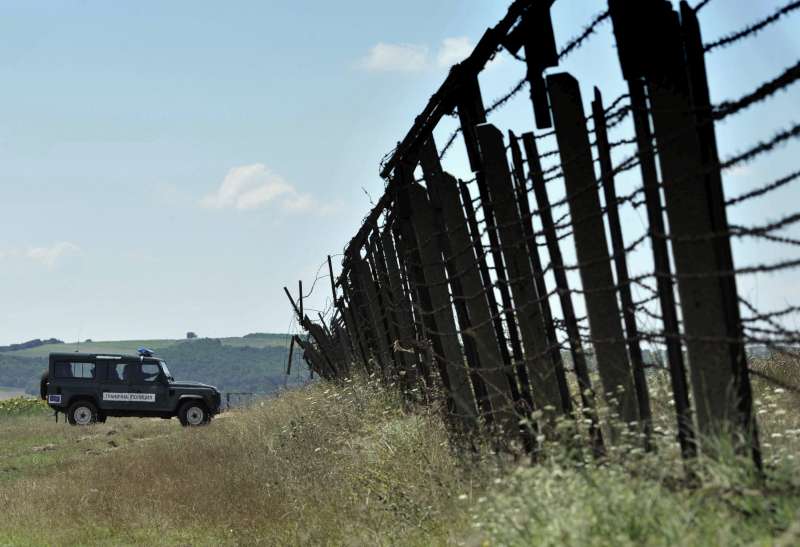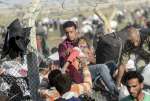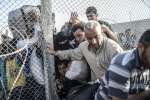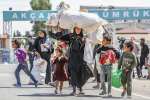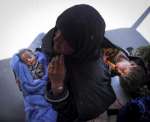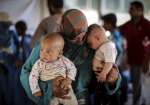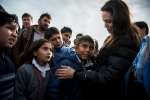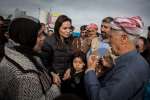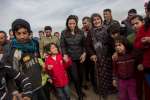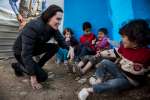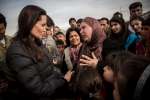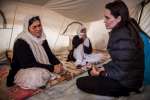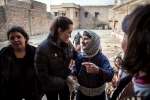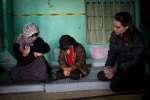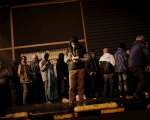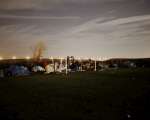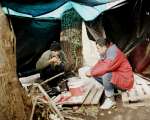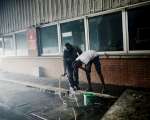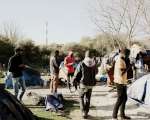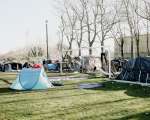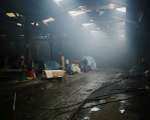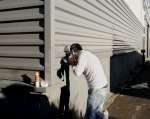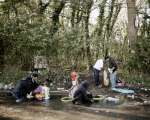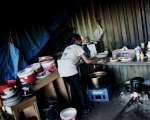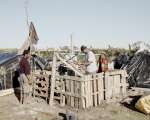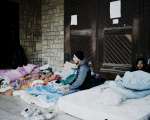- Text size
 |
|  |
|  |
| 
- عربي
UNHCR concerned by border practices after deaths of two Iraqis at the Bulgaria-Turkey border
News Stories, 31 March 2015
GENEVA, 31 March (UNHCR) – The UN refugee agency on Tuesday expressed increasing concern that people needing international protection were being blocked from entering the European Union, citing the deaths of two Iraqi men who were in a group of 12 Yazidi people allegedly beaten by Bulgarian border guards.
"With few legal alternatives to enter the European Union, many people fleeing conflict and persecution are undertaking increasingly dangerous journeys and using smugglers to reach safety," William Spindler, a spokesman for the UN High Commissioner for Refugees (UNHCR), told a news briefing.
"It is deeply disturbing that people in search of international protection are being turned away, often with violence. EU member states at the external border need to ensure that these practices stop, and should conduct independent and transparent investigations into allegations of abuses and illegal practices in their border regions."
The statement followed a recent incident in which UNHCR was told 12 Iraqis belonging to the Yazidi minority were stopped by Bulgarian border guards as they tried to enter from Turkey. The Iraqis had their belongings seized and were badly beaten.
The group scattered and two of the men, suffering from severe injuries, died later of hypothermia on the Turkish side of the border. According to the reports, a third person was taken in a critical condition to a hospital in Edirne after Turkish authorities were alerted.
"UNHCR urges the authorities in Bulgaria and Turkey to investigate this grave incident," Spindler said. "We are particularly disturbed by the accounts of brutality which may have contributed to the deaths of two people who, being members of the persecuted Yazidi community, were likely to have been refugees."
Information gathered by UNHCR in 2014 indicated that people seeking international protection often attempted to cross the border into Bulgaria multiple times, but had to turn back because of bad weather, were abandoned by people smugglers paid to take them across the border, or were intercepted by Turkish authorities.
Many, however, reported being denied entry or being "pushed back" by Bulgarian border guards. "Push-backs" are not in conformity with Bulgaria's obligations to admit asylum-seekers to their territory. The use of violence has also been reported and, in many cases, people say their money and property were confiscated by border police.
Bulgaria is planning to add 82 kilometres of razor-wire fences to an existing 33-kilometre fence constructed in 2014 in response to increased irregular arrivals, the majority from Syria. Efforts to reduce the number of irregular arrivals and asylum-seekers in Bulgaria had a significant effect in 2014, with almost 50 percent less arrivals than the previous year.
According to Bulgarian authorities, over 38,500 people attempted to cross irregularly the Bulgaria-Turkey border in 2014. Some 6,000 of them – mostly Syrians, Afghans and Iraqis – reached Bulgaria. This is a significant drop from11, 500 irregular arrivals -- out of over 16,700 attempts -- registered in 2013.
"Limited access to border posts, combined with more fences and "push-backs," are leaving asylum-seekers with very few options," Spindler said. UNHCR has received emergency calls from people, mostly Syrians, who walked for days in harsh weather in remote areas to try to reach Bulgaria.
"Erecting fences and creating more barriers instead of providing additional legal avenues to reach safety in the EU pushes people in need of international protection into increasingly dangerous situations with, sometimes, fatal consequences," he said.
Elsewhere, UNHCR has raised concerns over reports of border practices that could place refugees and migrants at risk, notably in Greece, where UNHCR has documented numerous accounts of "push-backs" at the land and sea borders with Turkey, especially in the last two years.
Spindler said UNHCR will make recommendations to the new Greek government about improving various refugee-related protection issues, including management of the country's borders that takes into account the protection needs of refugees and asylum-seekers.
